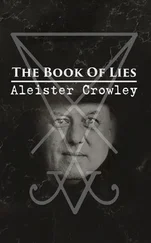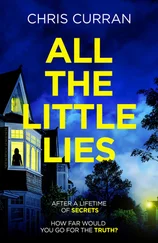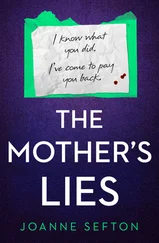At the door of the officer's room, the policeman asks:
"What's in here?"
Grandmother says:
"It's a room I rent to a foreign officer. I don't have the key."
The policeman looks at the door to the attic:
"You don't have a ladder?"
Grandmother says:
"It's broken."
"How do you get up there?"
"I don't. Only the kids go up there."
The policeman says:
"Well, let's go, kids."
We climb up to the attic by the rope. The policeman opens the chest where we keep the things we need for our studies: Bible, dictionary, paper, pencils, and the Notebook in which everything is written. But the policeman hasn't come to read. He rummages through a pile of old clothes and blankets one more time, and we go down again. Back downstairs, the policeman looks around him and says:
"I obviously can't dig up the whole garden. Right. Come with me."
He takes us into the forest, to the edge of the big hole where we found the corpse. The corpse isn't there anymore. The policeman asks:
"Have you ever been here before?"
"No. Never. We would have been afraid to go so far."
"You've never seen this hole or a dead soldier?"
"No, never."
"When they found that dead soldier, his rifle, his cartridges, and his grenades were missing."
We say:
"He must have been very absentminded and careless, that soldier, to have lost all those things so indispensable to a soldier."
The policeman says:
"He didn't lose them. They were stolen from him after he died. You often come into the forest, don't you have any ideas on the matter?"
"No. No ideas at all."
"Yet someone certainly took that rifle, those cartridges, and those grenades."
We say:
"Who would dare to touch such dangerous things?"
We are in the policeman's office. He is sitting at a table, we are standing in front of him. He gets paper and pencil. He is smoking. He asks us questions:
"How long have you known the priest's housekeeper?"
"Since the spring."
"Where did you meet her?"
"At Grandmother's. She came for potatoes."
"You deliver wood to the priest's house. How much are you paid for that?"
"Nothing. We take wood to the priest's house to thank the housekeeper for doing our washing."
"Is she nice to you?"
"Very nice. She makes bread and butter for us, cuts our nails and hair, and lets us have baths there."
"Like a mother, in fact. And the parish priest, is he nice to you?"
"Very nice. He lends us books and teaches us a lot of things."
"When did you last take wood to the priest's house?"
"Five days ago. On Tuesday morning."
The policeman walks up and down the room. He closes the curtains and turns on his desk lamp. He draws up two chairs and tells us to sit down. He shines the lamp in our faces:
"You're very fond of the housekeeper?"
"Yes, very."
"Do you know what's happened to her?"
"Has something happened to her?"
"Yes. Something horrible. This morning, as usual, she was lighting the fire, and the kitchen stove blew up. It hit her full in the face. She's in the hospital."
The policeman stops talking; we say nothing. He says:
"You have nothing to say?"
We say:
"If something blows up in your face, you're bound to end up in the hospital, or even in the morgue. She's lucky she isn't dead."
"She's disfigured for life!"
We are silent. The policeman too. He looks at us. We look at him. He says:
"You don't look particularly sad about it."
"We're glad she's alive. After such an accident!"
"It wasn't an accident. Someone hid an explosive in the firewood. A cartridge from an army rifle. We've found the case."
We ask:
"Why would anyone do that?"
"To kill her. Her or the priest."
We say:
"People are cruel. They like to kill. It's the war that has taught them that. And there are explosives lying around everywhere."
The policeman starts to shout:
"Stop trying to be clever! You're the ones who deliver wood to the priest's house! You're the ones who hang around all day in the forest! You're the ones who strip the corpses! You're capable of anything! You have it in your blood! Your Grandmother has a murder on her conscience too. She poisoned her husband. With her it's poison, with you it's explosives! Admit it, you little bastards! Admit it! It was you!"
We say:
"We aren't the only ones who deliver wood to the priest's house."
He says:
"That's true. There's also the old man. I've already questioned him."
We say:
"Anyone can hide a cartridge in a pile of wood."
"Yes, but not anyone can have cartridges. I'm not interested in your housekeeper! What I want to know is where the cartridges are. And the grenades? And the rifle? The old man has admitted everything. I've questioned him so well that he's admitted everything. But he couldn't show me where the cartridges, the grenades, and the rifle are. He's not the guilty one. It's you! You know where the cartridges, the grenades, and the rifle are. You know, and you're going to tell me!"
We don't respond. The policeman hits us. With both hands. Right and left. We are bleeding from the nose and mouth.
"Admit it!"
We say nothing. He goes white, he hits us over and over again. We fall off our chairs. He kicks us in the ribs, in the kidneys, in the stomach.
"Admit it! Admit it! It was you! Admit it!"
We can no longer open our eyes. We can no longer hear. Our bodies are covered with sweat, blood, urine, and excrement. We lose consciousness.
We are lying on the hard dirt floor of a cell. Through a tiny barred window, a little light is coming in. But we don't know what time it is, or even if it is morning or afternoon.
We hurt all over. The slightest movement makes us fall back into semiconsciousness. Our vision is fuzzy, our ears are ringing, our heads are pounding. We are terribly thirsty. Our mouths are dry.
Hours go by this way. We don't speak. Later, the policeman comes in and asks us:
"Do you need anything?"
We say:
"Something to drink."
"Talk. Confess. And you'll have as much as you want to eat and drink."
We don't answer. He asks:
"Grandfather, do you want something to eat?"
Nobody answers. He goes out.
We realize we aren't alone in the cell. Carefully we raise our heads a little and see an old man lying huddled in a corner. Slowly we crawl over to him and touch him. He is stiff and cold. We crawl back to our place near the door.
It is already night when the policeman comes back with a flashlight. He shines it at the old man and says:
"Sleep well. Tomorrow morning you can go home."
He shines it at us too, straight in our faces, one after the other:
"Still nothing to say? It's all the same to me. I can wait. You'll either talk or die here."
Later that night the door opens again. The policeman, the orderly, and the foreign officer come in. The officer bends down and looks at us. He says to the orderly:
"Telephone the base for an ambulance!"
The orderly goes out. The officer examines the old man. He says:
"He's beaten him to death!"
He turns to the policeman:
"You'll pay dearly for this, you vermin! If you only knew how you'll pay for all this!"
The policeman asks us:
"What did he say?"
"He said that the old man is dead and that you'll pay dearly for it, you vermin!"
The officer strokes our foreheads:
"My poor little boys. How dare he hurt you, that filthy pig!"
The policeman says:
"What's he going to do to me? Tell him I've got children… I didn't know… Is he your father or something?"
We say:
"He's our uncle."
"You should have told me. How could I have known? Please forgive me. What can I do to…"
Читать дальше
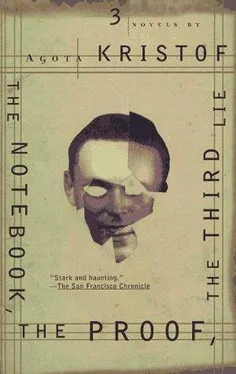




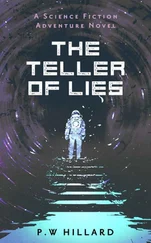
![Джеффри Дивер - Where the Evidence Lies [A Lincoln Rhyme Short Story]](/books/403782/dzheffri-diver-where-the-evidence-lies-a-lincoln-r-thumb.webp)
